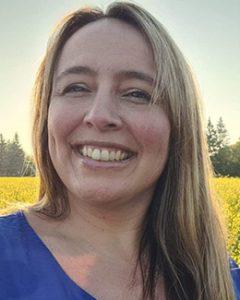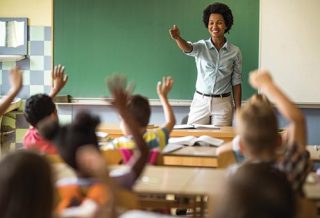FOCUS
What special education teachers want to know
By Denise Heppner
Categories: Continuous improvement, Equity, International perspectives, OutcomesOctober 2023
Read the remaining content with membership access. Join or log in below to continue.
Sed ut perspiciatis unde omnis iste natus error sit voluptatem accusantium doloremque laudantium, totam rem aperiam, eaque ipsa quae ab illo inventore veritatis et quasi architecto beatae vitae dicta sunt explicabo. Nemo enim ipsam voluptatem quia voluptas sit aspernatur aut odit aut fugit, sed quia consequuntur magni dolores eos qui ratione voluptatem sequi nesciunt. Neque porro quisquam est, qui dolorem ipsum quia dolor sit amet, consectetur, adipisci velit, sed quia non numquam eius modi tempora incidunt ut labore et dolore magnam aliquam quaerat voluptatem.
References
Brunsting, N.C., Sreckovic, M.A., & Lane, K.L. (2014). Special education teacher burnout: A synthesis of research from 1979 to 2013. Education and Treatment of Children, 37(4), 681-711.
Learning Forward. (2022). Standards for Professional Learning. Author.
Lives in the Balance. (2023). Different lenses, different practices, different outcomes. livesinthebalance.org/our-solution/
Moats, L.C. (2020). Teaching reading is rocket science, 2020: What expert teachers of reading should know and be able to do. www.aft.org/sites/default/files/moats.pdf
Rock, M.L., Spooner, F., Nagro, S., Vasquez, E., Dunn, C., Leko, M., Luckner, J., Bausch, M., Donehower, C., & Jones, J.L. (2016). 21st century change drivers: Considerations for constructing transformative models of special education teacher development. Teacher Education and Special Education, 39(2), 98-120.
Strickland-Cohen, M.K., Kennedy, P.C., Berg, T.A., Bateman, L.J., & Horner, R.H. (2016). Building school district capacity to conduct Functional Behavioral Assessment. Journal of Emotional and Behavioral Disorders, 24(4), 235-246.
Toste, J.R. & Lindstrom, E.R. (2022). The science of instruction: Contributions of special education research to reading science. The Reading League Journal, 3(3), 30-39.

Denise Heppner (heppnerd@stf.sk.ca) is associate director of Saskatchewan Teachers’ Federation Professional Learning.
Categories: Continuous improvement, Equity, International perspectives, Outcomes
Recent Issues
WHERE TECHNOLOGY CAN TAKE US
April 2024
Technology is both a topic and a tool for professional learning. This...
EVALUATING PROFESSIONAL LEARNING
February 2024
How do you know your professional learning is working? This issue digs...
TAKING THE NEXT STEP
December 2023
Professional learning can open up new roles and challenges and help...
REACHING ALL LEARNERS
October 2023
Both special education and general education teachers need support to help...










